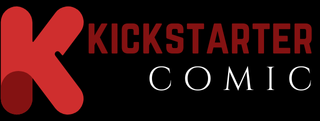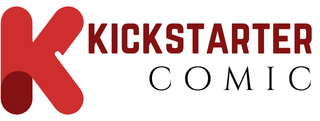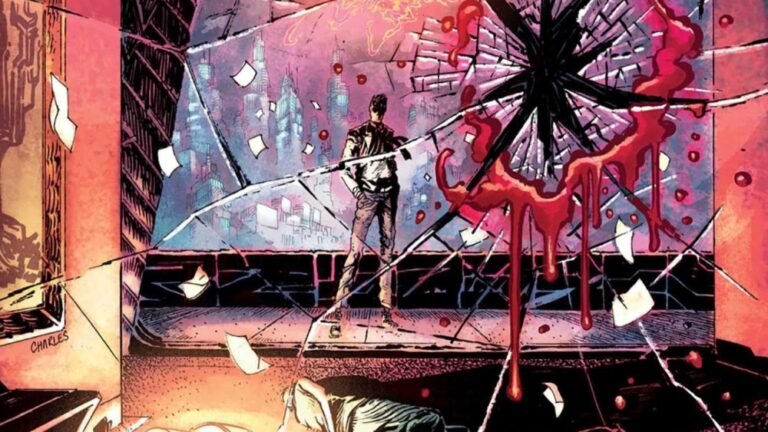There’s really interesting sci-fi, then there’s Roche’s limitations.
Starting in the fall of 2014, Roche Limit is a bold and inventive brain child along with author Michael Moresi (Barbarian) with a bold and inventive brain child (Vic Malhotra, Matt Battaglia, Kyle Charles). Over three volumes and 14 separate issues, the series was immediately announced for pushing the genre with its strength, foresight, political savvy, general talent and creativity. (Publications like Paste and Nerdist quickly sang praises in or near classics like 2001.) It was a book very relevant to pure sci-fi experiences, but also totally fascinating.
Roche Limit was kicked off in the first No. 5 arc (“abnormal”) between 2014 and 2015. Here we were featured in the Roche Limit Colony, a promising city “located at the cusp of mystical energy anomalies” that has become a “fusion of crime and a terrifying secret melting pot.” With the disappearance of one young girl, her sister and some of the more evil inhabitants of Roche Limited quickly launched into “Odyssey that uncovers the harsh future of humanity.”
In 2015, Roche Limit expanded with its second arc, “Clandestiny.” The crew of military and science personnel are sent to a deadly planet forgotten in a mystical expedition, held about 75 years after their debut series. What they find is not merely a lost promise, but a “mysterious being that bothers them all.”
Finally, in 2016, the four-part “Monadic” Ark compiled the story of Roche Limit. (At least for now…) As the earth is flooded after the actions of black people, we dig into the last remaining cities. There, “The residents fight for survival, but their world recognizes that they may not see it.”
So why are we talking about a 10-year series like Roche Limit? Well, one of them is the quality and skill that comes with it. What’s more, the whole “seeing a bright vision of billionaire Space Explorer exploding in his face” is painfully related to 2025. But otherwise, it’s because Moresi recently launched a gorgeous hardcover Zoop campaign. It not only collects the entire series, but also features “brand new introductions (from Moreci) and additional materials.” That way you can read one of the most important sci-fi stories of the past decade as intended.
If you have a tendency to support the Roche Limit campaign, please see here. Leading to the campaign, Moresi was kind enough to answer some of the most burning questions in the email. That includes how he sees the story on a massive scale, greater foresight/relevance, what this deluxe hardcover contains, why the book begins, and even how to see future arcs/add-ons.
AIPT: How do you see Roche’s limitations in your career/bibliographic grand scheme? When it was first released, what did it do creatively for you, or might enhance your career?
Michael Moreci: That’s a great question. I really look back at Roche’s limits as a breakout book. Maybe some people would argue it’s a wild bar, but I don’t know if I’ll get to the stage of my career without the limitations of Roche. It was my first authentic, successful comic, commercially and critical, and I think the latter is even more important. The reaction I received from critics and readers gave me the confidence to know that I was interested in – artistic, philosophical and pure entertainment resonated and that it made all the difference in the world.
AIPT: How did your relationship with books/story evolve this year? Do you think it’s somehow more relevant these days?
MM: Well, you’re always looking at your past work and thinking about what you did things differently. That’s not a difference with Roche’s restrictions. But I would probably change a ton. It merely details that I am certainly an obsessed person.
To answer your second question, sadly, I think it’s more relevant than ever. He promises a star, but a billionaire who delivers filth? So, it wasn’t that prominent back then, but now it’s on every street corner. We live in an age of great promises from little men, and the conflict is at the heart of Roche’s limits.
From Roche Limit #2.
AIPT: How was it like reconnecting/reuniting with Kyle Charles and Vic Malhotra for this process? How has that collaborative process changed over the years?
MM: I was so happy to talk to both of them again! It was too long. Vic and Kyle are both incredible artists – anyone can see it – and wonderful, amazing people. I really missed working with them as well as being around them.
AIPT: You were really ahead of the line, saying, “A billionaire is trying to change the future and just change the ball.” Where did the original idea come from, and what was it social/political in 2014-2015?
MM: In a way, sadly, it’s a kind of evergreen idea. But I really saw the text written on the wall during that period. Around 2014, it’s when everything appears to be sold to businesses and privatized. Everything from war to parking meters was sold to large corporations, essentially in the hands of entities who, if any, didn’t care much about the future of the world, if any, about the greater profits. s
o, as Chuck Palaniuk said, if we reach the star, it would go to the planet Starbucks on MacDonald’s rocket. And look, this is a complicated relationship and I hardly scratch the surface. But what’s important is that I saw these things happening, and it made me think about how the billionaires and multinational companies that I own everything will affect the fate of our world and existence.
From Roche Limit: Secret #1.
AIPT: Are there any issues/story sections that stand out as particularly exceptional and/or important? And why?
MM: I love them all for a variety of reasons, but “secrets” stand out as something really special. I have a lot, but it’s also a very strange book. It’s strange, but somehow he’s very human. I really love that story.
AIPT: The series also received great acclaim when it was released. Did that reaction shock you at all? Did you think this book would be perceived as being very original and innovative?
MM: Ah, that definitely shocked me. I’ve always thought that familiar elements help to help it – comparing it to Blade Runner and 2001 never hurts – but I realize that the story is rather unconventional. What begins as a sci-fi noir in volume 1 (“abnormal”) expands very quickly into rather unusual areas. Next, in Volume 2 (“Secret”), you get this alien-esque survivor story. And Volume 3 (“Monadic”) finishes from a wild start.
AIPT: If you can somehow change some of the comprehensive story during the re-release process, what and why?
MM: Change the first problem. That bothers me to this day! And this has nothing to do with my collaborators. This is purely a scripting issue. I just don’t think the hook is strong enough. If you have to try again, then the problem has a completely different outcome. I plant a much better hook and finish with a more amazing twist. The ending remains as is…it’s fine, but it’s not the gut punch you need to drive your readers to the second issue.
From Roche Limit: Monadic #1.
AIPT: Could you give us a little teaser of what you might be discussing in your brand new intro?
MM: Well, there’s a lot we discussed here! My plan is to peek at the legacy of the book and how its themes remain prominent in our time, for better or worse. And I think it’s important that art works this way. It should help us to consider where we are and where we are going, and we hope Roche has achieved this and continues to do so now.
aipt: Can we see more Roche limits in the future? What might the story after that look like?
MM: I’m always thinking about it, I really do. But I am very afraid to take the wrong step. I certainly don’t think the book is perfect, so I’m not messing around with perfection. But I think it’s the exact correct dose.
But again, I didn’t think I could continue with the blade runner. 2049 proved me wrong. So you never know…
AIPT: What should I know about Roche’s limitations, science fiction, terrible billionaires, space travel, the future, and more?
MM: Yes! If a billionaire promises you a bright, shiny future, then know that after saying that the billionaire’s thirst has been quenched, the promised future will come – glory, money, and power. And I believe that thirst will never go away.


